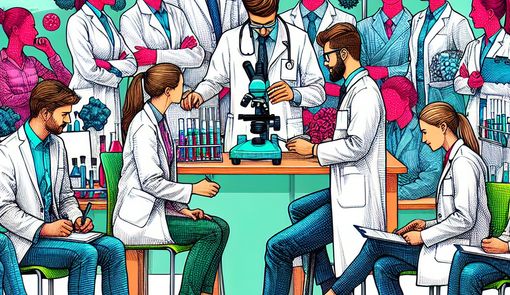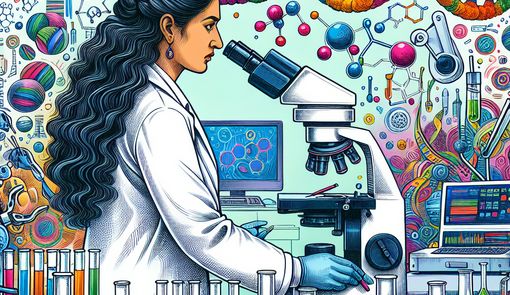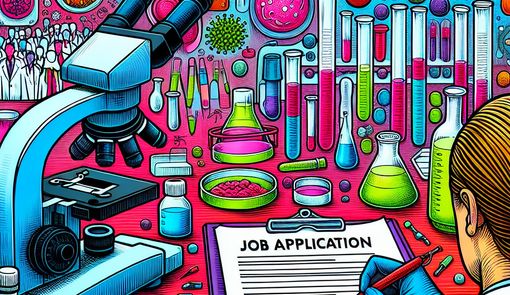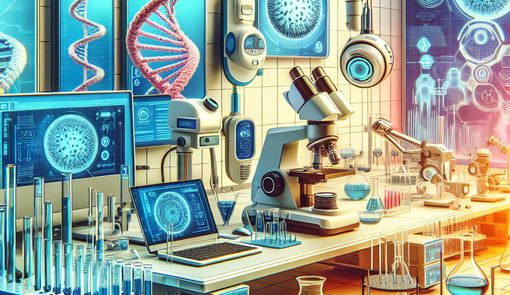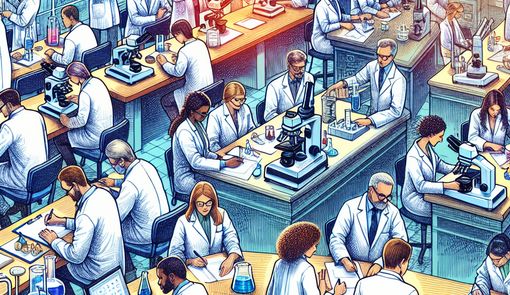Navigating Licensure: A Guide for Aspiring Clinical Laboratory Scientists
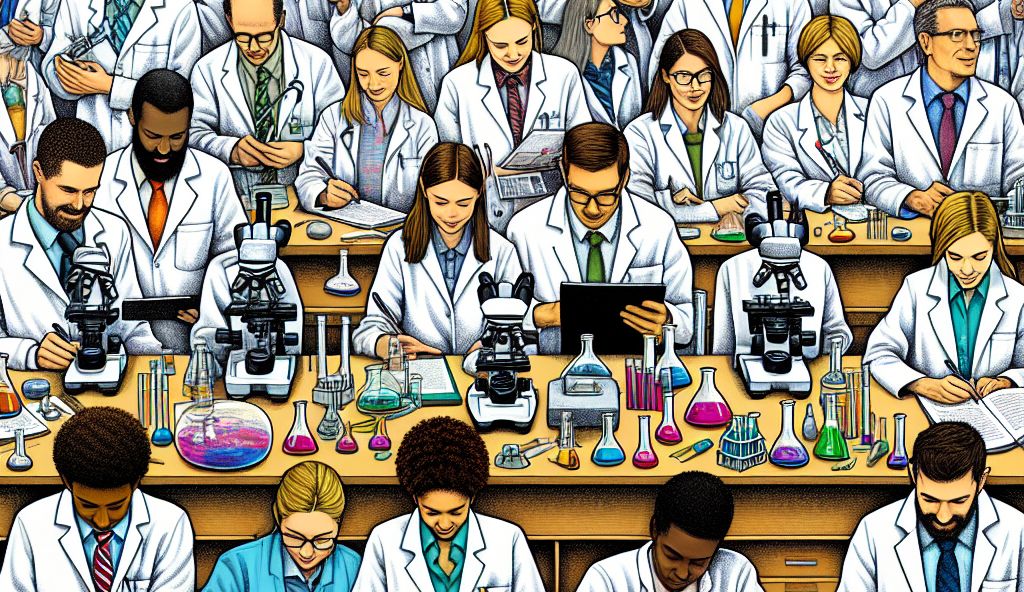
Clinical Laboratory Scientists (CLS), also known as Medical Technologists, play a pivotal role in the healthcare industry. They are responsible for performing critical laboratory tests that contribute to the diagnosis, treatment, and prevention of diseases. Given the critical nature of this occupation and its direct impact on patient health, it is imperative for aspiring Clinical Laboratory Scientists to understand the intricacies of obtaining and maintaining licensure in their field. This guide will provide a comprehensive overview of the licensure process, exam preparation strategies, and maintaining certification for aspiring Clinical Laboratory Scientists.
Understanding Licensure Requirements
Licensure for Clinical Laboratory Scientists is mandated to ensure that professionals meet the necessary educational and competency standards to safely perform laboratory testing. The requirements for licensure vary by state in the United States, but typically include completing a bachelor's degree in medical technology or a life sciences field, undergoing supervised clinical experience, and passing a national certification examination.
Prospective CLS should start by researching the specific requirements in their state. This can usually be found on the state's department of health or medical board website. It is important for applicants to familiarize themselves with the accredited educational programs, clinical training prerequisites, and the accepted certification exams.
Preparing for Licensure Examinations
Passing the licensure examination, often administered by organizations such as the American Society for Clinical Pathology (ASCP) or the National Credentialing Agency (NCA), is one of the most critical steps in becoming a licensed CLS. Preparation for these exams involves a mix of theoretical knowledge and practical skills.
Study Materials and Resources
- Textbooks and Review Guides: Use comprehensive textbooks and review guides specific to clinical laboratory science. Often, these resources are recommended by certification bodies and align with the exam content outlines.
- Online Courses and Workshops: Many organizations offer online preparatory courses and review workshops designed to simulate the exam experience and reinforce key concepts.
- Practice Exams: Taking practice exams is crucial to getting familiar with the format and the types of questions that will be on the actual test. They also provide a means to assess your strengths and weaknesses.
- Peer Study Groups: Collaborating with others preparing for the same exam can offer support, insight, and accountability. Share resources, quiz one another, and discuss difficult topics.
Study Plan and Schedule
Creating a detailed study plan is vital in ensuring comprehensive exam preparation. Allocate sufficient time for each subject area, incorporate regular review sessions, and adjust your plan based on practice test results. Being consistent with your study schedule is equally important to retain the information.
Maintaining Certification
Once licensed, Clinical Laboratory Scientists must adhere to continuing education requirements to maintain their certification. This is essential for keeping up with technological advancements and evolving industry standards. Many certifying bodies require a certain number of continuing education units (CEUs) or participation in professional development activities over a specified period.
Continuing Education (CE)
- Professional Conferences and Seminars: Attending conferences and seminars is a great way to earn CEUs while networking with peers and learning about the latest advancements.
- Online CE Programs: There are numerous online platforms that offer CE courses designed specifically for CLS professionals.
- Academic Courses: Enrolling in higher-level academic courses can not only provide CEUs but also enhance your expertise and potentially lead to career advancement.
Keeping Up with Changes in Licensure Requirements
Licensure requirements can change over time. It is the responsibility of the CLS to stay informed about these changes by regularly checking the state board or certifying body's communications. Being proactive can help in planning and fulfilling any new requirements accordingly.
Conclusion
The journey to becoming a licensed Clinical Laboratory Scientist is comprehensive and requires thorough preparation, both academically and practically. Understanding the licensure requirements, preparing adequately for the exams, and engaging in continuous professional development are the pillars of not only obtaining but also maintaining licensure in this field. As the medical landscape evolves, CLS professionals must evolve with it, ensuring that they remain competent to deliver the high-quality care that the healthcare industry demands.
Frequently Asked Questions
1. What are the typical educational requirements for licensure as a Clinical Laboratory Scientist?
To become a licensed Clinical Laboratory Scientist, individuals generally need to complete a bachelor's degree in medical technology or a related life sciences field. This educational background provides the foundational knowledge and skills necessary to perform laboratory testing safely and effectively.
2. How can I find information about licensure requirements in my state?
Prospective CLS candidates can typically find information about licensure requirements in their state by visiting the state's department of health or medical board website. These official sources outline the specific steps, educational prerequisites, and examination processes needed to obtain licensure as a Clinical Laboratory Scientist.
3. What is the importance of passing the licensure examination?
Passing the licensure examination is a critical step in the process of becoming a licensed Clinical Laboratory Scientist. This exam assesses the candidate's proficiency in key areas of clinical laboratory science and ensures they meet the necessary standards to practice safely and competently.
4. How can I best prepare for the licensure examination?
Effective preparation for the licensure examination involves a combination of studying comprehensive textbooks, taking practice exams, participating in online courses or workshops, and engaging in peer study groups. Creating a detailed study plan tailored to individual strengths and weaknesses is essential for success.
5. What is the significance of continuing education for maintaining certification?
Continuing education is vital for maintaining certification as a Clinical Laboratory Scientist. It allows professionals to stay updated with advancements in the field, enhance their skills, and meet the evolving industry standards. Professionals can earn continuing education units (CEUs) through various activities such as attending conferences, online programs, and academic courses.
6. How can CLS professionals stay informed about changes in licensure requirements?
To stay informed about changes in licensure requirements, CLS professionals should regularly monitor communications from their state board or certifying body. Being proactive in understanding and adapting to any modifications in the requirements ensures compliance and smooth continuation of licensure.
These frequently asked questions provide a clearer insight into the licensure process and ongoing professional development requirements for aspiring and practicing Clinical Laboratory Scientists.
Further Resources
For additional information and resources related to licensure and certification for Clinical Laboratory Scientists, the following external links can be beneficial:
- American Society for Clinical Pathology (ASCP)
- The ASCP website provides detailed information on certifications, educational resources, and professional development opportunities for Clinical Laboratory Scientists.
- National Credentialing Agency (NCA)
- The NCA offers certification examinations and resources to support professionals in the clinical laboratory science field.
- American Association of Bioanalysts (AAB)
- The AAB website offers insights into licensure requirements, exam preparation tips, and industry updates specific to Clinical Laboratory Scientists.
- Clinical Laboratory Management Association (CLMA)
- CLMA provides access to webinars, publications, and networking opportunities for CLS professionals seeking career advancement and professional growth.
- National Accrediting Agency for Clinical Laboratory Sciences (NAACLS)
- NAACLS accredits educational programs in clinical laboratory science and offers resources for students and professionals pursuing licensure.
- American Medical Technologists (AMT)
- AMT provides certifications, continuing education options, and career development resources for Clinical Laboratory Scientists.
- Clinical Laboratory Improvement Amendments (CLIA)
- The CLIA website offers information on federal regulatory standards and guidelines for clinical laboratory testing to ensure quality and accuracy in healthcare practices.
Exploring these resources can further enhance your understanding of licensure processes, exam preparation strategies, and professional development opportunities in the field of Clinical Laboratory Science.

